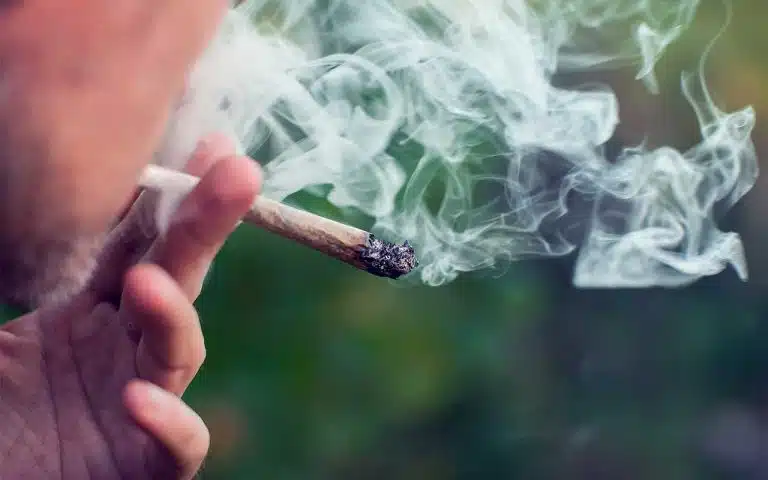Marijuana Overdose | Can You Overdose On Weed (Marijuana)?
- Can You Overdose On Marijuana?
- Symptoms Of Excessive THC Ingestion
- Marijuana Deaths
- What To Do If You Suspect Marijuana Overdose

The cannabis plant and the complex psychoactive drug marijuana can have a wide range of health effects on the human body and mind. Excessive marijuana use, including polysubstance abuse, can increase the risk of adverse reactions, including accidents and death.
Can You Overdose On Marijuana?
Marijuana, by itself, does not cause an overdose. By definition, overdoses occur when enough of a drug is taken to cause life-threatening or fatal effects. As of this date, there are no known cases of teens or adults dying as a result of marijuana use alone.
However, marijuana often contributes to fatal overdoses when used with other drugs as polysubstance abuse. And, taking too much marijuana at any one time can cause worrying or harmful effects, leading to emergency medical attention.
Symptoms Of Excessive THC Ingestion
If you use more marijuana than you should, or if the particular product has higher tetrahydrocannabinol (THC)/cannabinoid levels than you are used to, you may experience adverse effects which can be frightening, uncomfortable, or even harmful.
The symptoms of excessive THC ingestion are similar to those of regular marijuana use, but more extreme, and may include:
- anxiety
- confusion
- paranoia
- panic
- severe nausea or vomiting
- elevated blood pressure
- fast heart rate
- hallucinations
- delusions
Psychosis and other harmful reactions are most common among those who:
- have never tried the drug before
- take it by accident (generally via brownies, candy, or other edibles)
- mis-dose themselves due to inexperience (again, often through edibles)
- have developed tolerance to the drug and routinely take very high doses
Marijuana Deaths
Even without the risk of overdosing, cannabis use is a contributing factor in many deaths in the United States each year.
Polysubstance Abuse
Marijuana’s impact on the body is complex, causing psychotropic, stimulant-like, and depressant-like effects.
The potential interactions between marijuana and alcohol, heroin, fentanyl, methamphetamine, and other substances—including prescription medications—are likewise complex and not fully understood.
This means that marijuana can potentially increase the toxicity of other drug overdoses in unexpected ways. Even alcohol, a completely legal substance for those of age, drastically increases the risk of negative outcomes when consumed with marijuana.
Accidents
Never attempt to drive while under the influence of drugs, alcohol, or mind-altering medications. Using marijuana and alcohol is a common substance combination implicated in harmful and fatal car accidents.
Aside from the intoxicating effects of both of these substances together, it is thought that blood alcohol may increase the amount of THC active in the blood, further compromising your decision making, slowing your reaction speed, and potentially triggering hallucinations.
Pre-Existing Conditions
Marijuana’s stimulating effects on the heart and breathing can cause serious side effects, including medical emergencies and death, when serious pre-existing conditions are present.
Heart disease, asthma, and mental health disorders are some of the most common risk factors.
Unexplained deaths related to vaping and recreational marijuana have also been reported.
What To Do If You Suspect Marijuana Overdose
If you’ve taken too much and are having a bad reaction, or if someone around you or a child has taken the drug and is reacting poorly, call for emergency medical attention.
It’s important to give the dispatcher or medical responders all the information you can, including when the drugs were taken, how they were taken, how much was taken, and the age, approximate weight, and past drug use of the victim.
Emergency room staff can treat various forms of drug overdose with antidotes, medications, breathing support, tests, and IV fluids. In the case of marijuana, medical care can help calm the victim and keep them safe and medically stable until the effects of the drug fade.
Treating Marijuana Use Disorder
Signs of marijuana addiction may include:
- cravings for the drug
- tolerance to the drug’s effects, leading to higher and higher doses
- drug hoarding
- diverting needed money to marijuana purchases
- disengaging from work, hobbies, or and relationships in favor of drug use
- taking risks while under the influence
- being unable to stop marijuana use, even when you want to
If marijuana use becomes a problem, with frequent over-use events or high-risk behavior, professional treatment can help.
Inpatient and outpatient rehabilitation programs for marijuana use disorder can give you or your loved ones the tools and support to work through marijuana withdrawal, overcome physical dependence on the drug, and achieve lasting recovery from addiction.
To learn more about our substance abuse treatment options options, contact Ark Behavioral Health today.
Written by Ark Behavioral Health Editorial Team
©2024 Ark National Holdings, LLC. | All Rights Reserved.
This page does not provide medical advice.
Centers for Disease Control and Prevention - Is it possible to “overdose” or have a “bad reaction” to marijuana?
National Institute on Drug Abuse - Marijuana DrugFacts
Substance Abuse and Mental Health Services Administration - Know the Risks of Marijuana

Questions About Treatment?
Ark Behavioral Health offers 100% confidential substance abuse assessment and treatment placement tailored to your individual needs. Achieve long-term recovery.
100% confidential. We respect your privacy.
Prefer Texting?
Our friendly support team is here to chat 24/7. Opt out any time.







 Learn More
Learn More








